Press Release Jerusalem, July 7, 2008 … In a series of meetings in Ankara, top Turkish government officials and leaders of the Anti-Defamation League (ADL) discussed a variety of issues, including Turkey’s efforts to facilitate peace talks between Israel and Syria, the close relationship between Turkey and Israel, and strengthening relations between the United States and Turkey in an effort to combat terrorism and extremism in the region.
In Turkey, Glen S. Lewy, ADL National Chair and Abraham H. Foxman, ADL National Director met with President Abdullah Gul, Prime Minister Recep Tayyip Erdogan, main opposition Republican People’s Party leader Deniz Baykal and Deputy Chief of Staff Gen. Ergin Saygun.
They also met with the foreign minister, minister of justice, interior minister and education minister, as well as members of parliament and the U.S. and Israeli ambassadors to Ankara.
Currently in Israel with delegation of senior ADL leaders, Mr. Lewy and Mr. Foxman said: “We applaud Turkey for its efforts to facilitate peace talks between Israel and Syria and for maintaining a close relationship with Israel across the board.
“We appreciate Turkey’s role in communicating to Iran the seriousness with which the West views its future possible nuclear capability. In our meetings, we also expressed appreciation of the embrace and support of the Jewish community and the frequent public condemnation of anti-Semitism by President Gul, both in Turkey and abroad. We also discussed the close U.S.-Turkey relationship, especially in the effort to combat terrorism and extremism in the region.”
Regarding the Armenian issue, ADL urged Turkish officials to resolve the matter in a proactive way between the government of Armenia and the government of Turkey and to deal with alleviating the needs of today’s Armenians as part of an effort to resolve the historic affair”
“My advice is that Turkey be creative and proactive in strengthening the relationship with Armenia as a way to deal with the issue,” said Mr. Foxman. “That will bring about a coming together of history. I suggested finding ways to work together that will help change the atmosphere, because we have a concern today for the well-being of Armenia. Armenia and Turkey need to solve this, not in a political forum such as Congress or parliaments.”
In Istanbul, the delegation met with Turkey’s chief rabbi, Jewish community leaders, and the mayor before departing for Israel.
Source:
—
Cartoon In Lebanese Paper: Second Round Of [Turkey-Mediated Syria-Israel] Indirect Talks
Cartoonist: Hassan Bleibel
Source: Al-Mustaqbal, Lebanon, July 2, 2008
Source:
Category: News
-

ADL Leaders Discuss Israel-Turkey Relations with Top Government Officials in Ankara
-
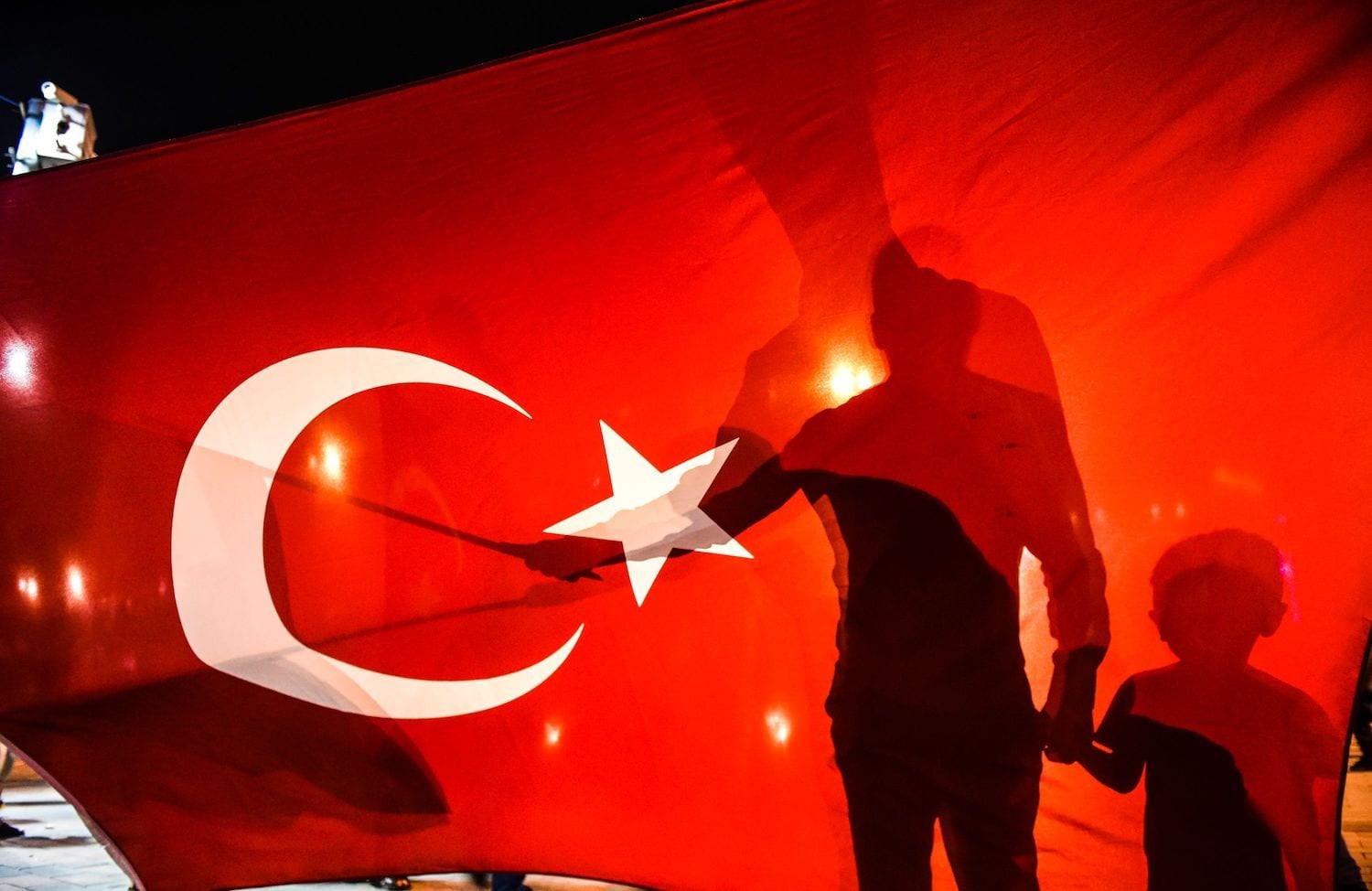
Turkish coup plot awakens fear of violent nationalism
[Guardian – 6.7.2008]Evidence of a conspiracy to overthrow the pro-Western Islamist government has laid bare the resentment of the country’s secular elite in a divided country, reports Robert Tait in IstanbulA pro secular demonstrator chants slogans against the government in Istanbul. Photograph: Tolga Bozoglu/EPA
In a recent declaration, Turkish nationalists identified what they described as the ‘six arrows’ of the country’s proper identity: nationalism, secularism, statism, republicanism, populism and revolutionism. Judging by the events of last week, it is the last arrow – revolution – that has preoccupied the more radical in recent months.
In an extraordinary raid which led to the arrests of 21 people allegedly tied to Ergenekon, a shadowy nationalist grouping, police uncovered documents that revealed plans for a sustained campaign of terror and intimidation against the Islamist government due to begin this week. A perfect storm of disruption was to be whipped up, beginning with a groundswell of popular protest, followed by a wave of assassinations and bombings, culminating in an economic crisis and army coup. Turkey’s moderate Islamist government would be ousted in favour of a right-wing secular dictatorship. The documents appeared to identify a 30-member assassination squad targeting judges and other prominent figures.
The episode is only the latest trauma to convulse the Turkish body politic. As the raids took place, the AKP government, led by Prime Minister Recep Tayyip Erdogan and President Abdullah Gul, was defending itself in court from accusations that it is trying to transform Turkey into a hardline Islamic state. If the AKP fails to convince the judges, 71 leading figures in the party, including Erdogan and Gul, risk being banned from politics for five years. Increasingly, Turkish democracy appears vulnerable to a vicious power struggle between a secular establishment and the affluent but religiously conservative middle class.
According to Professor Soli Ozel, of Istanbul’s Bilgi University, the more fanatical nationalists are determined to bring down the AKP, which despite its Islamist origins is pro-Western and pro-EU. ‘They are trying to pump up a modern urban Turkish nationalism with a racist tinge,’ said Ozel. ‘They are anti-Western and want to ally Turkey with Russia, China and even Iran. It’s very schizophrenic and full of paradoxes.’
The Ergenekon group is named after a legendary mountain in Asia where the ancient Turks are said to have taken refuge from the Mongols. Those arrested in dawn raids in Istanbul, Ankara, Antalya and Trabzon included two recently retired army generals, Sener Eruygur and Hursit Tolon. Eruygur, a former head of the paramilitary gendarmerie for internal security, is chairman of the Kemalist Thought Association, a group dedicated to Ataturk’s ideals of modernism, which include subjugating religion to the state. He is believed to have played a central role in two previous failed coup attempts against the AKP, which was re-elected in a landslide last July. Nationalist lawyers, prominent secular journalists, far-right politicians and even a mafia boss have also been detained.
The inquiry began after a cache of hand grenades was found in an Istanbul slum in June last year. Investigators claim to have since uncovered evidence of a motley coalition of secular nationalists colluding in a catalogue of past atrocities, including bomb attacks, a grenade attack on a newspaper and the murder last year of a Turkish-Armenian journalist, Hrant Dink. The alleged aim was to destabilise the AKP government by creating a climate of chaos.
Critics were quick to question the authenticity of the documents and accuse the AKP of instigating a witchhunt against its opponents, using its friends in the police. Nevertheless the detention of two former senior army commanders carried huge symbolic weight in a country where the military has always played the decisive political role since Ataturk established the modern Turkish state in 1923.
So, too, did the timing. The arrests came hours before the chief prosecutor, Abdurrahman Yalcinkaya, appeared before the constitutional court in Ankara to argue that the AKP should be closed for allegedly undermining Turkey’s secular system. The case against the AKP is contained in a 162-page indictment accusing the AKP of trying to create an Islamic state, a charge it denies.
Given the conspiratorial game that Turkish politics has become, cynics are suggesting that the Ergenekon case will be used as a bargaining counter to ensure the survival of the AKP.
The constitutional court had been widely expected to close the party when it delivers its verdict, probably next month. But with prosecutors saying they are ready to press terrorism-related charges against up to 60 suspects in the Ergenekon case, some suspect a deal has already been struck with moderate army commanders to try to avoid closure.
Eruygur’s arrest inside a military residential compound may provide a clue, since many believe it could not have happened without army top brass approval. Erdogan recently met General Ilker Basbug, due to take over soon as head of the army. Basbug appealed for calm after last week’s arrests, but avoided condemning them. ‘We all have to be acting with more common sense, more carefully and more responsibly,’ he said.
‘The arrests were a pretty coup for the AKP,’ said Professor Ozel. ‘Many people think this couldn’t have happened without the tacit approval of the military, at least from the legalists within it. If there is a tacit agreement with the military and they are working with the Prime Minister, you can expect that the court has decided that the AKP is not such a big threat after all.’
Whatever the outcome of the forthcoming battle of wills between Turkey’s nationalists and Islamists, the latest tremors in Turkey’s political landscape have revealed the enduring shadow of the country’s ‘deep state’. Secretive nationalist elements in the security apparatus are believed to have been behind a host of atrocities against the Kurds and other minorities, including the Alevis, a heterodox Islamic sect, during the 1990s. But, according to Ozel, if the Ergenekon trial ends in prosecutions ‘maybe that kind of nationalism in Turkey is going to weaken’.
Who’s who in Turkey
The AKP: In power for a year. Islamist, but has so far pursued a pro-Western agenda. In favour of Turkey becoming a member of the EU. Attempts to raise profile of Islam in Turkish society have led its opponents to accuse it of flouting Turkey’s secular constitution.
Republican People’s party: The main parliamentary opposition. Secular and nationalist. Seen as hostile to the EU.
The PKK: Outlawed Kurdish separatist party
The judges: Trial involving AKP could lead to party being disbanded for instituting Islamic state.
The military: Staged coup in 1980. Widely seen as responsible for fall of Islamist government in 1997
-
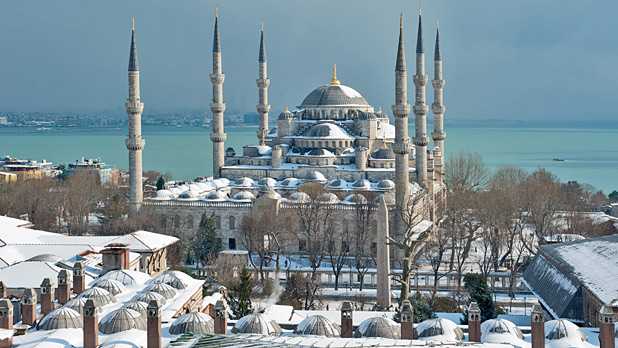
COMPLAINT LETTER TO THE ABC RADIO NATIONAL MANAGER
Dear Sir/Madam,
I am writing to you in relation to the Saturday Breakfast program that was aired on 21 June and 28 June 2008 on ABC Radio National. Author Giles Milton was the guest of these programmes and he spoke about his recent book “Paradise Lost: Smyrna 1922: The Destruction of Islam’s City of Tolerance”. During the program, he uttered groundless and biased allegations about the march of Turkish army to Izmir in 1922 to rightfully save the city from enemy occupation.
I would like to point out that fabricating such blackening and one-sided stories about a nation’s history does not conform to scientific objectivity which seems to be totally lacking in the author’s book Furthermore, airing such biased views on a national broadcasting service does not comply with the spirit of harmonious relations among different societies successfully established by the multicultural character of Australia.
I therefore underline my deep disappointment and strongly protest the ABC Radio National for airing one week after another, such a biased interviews full of fabricated and slanderous propaganda. By the way, it was the Greek occupation army which had destroyed and burnt the beautiful Turkish city of Izmir and committed heinous crimes as they fled.
With the sincere hope of listening to programmes reflecting not only fabrications but also the objective truths of a story.Guide:
1. Click the link below to open ABC complaints page:
2. Fill in the necessary spaces.
3. Copy and paste the above text to the appropriate space.
4. Click send. -
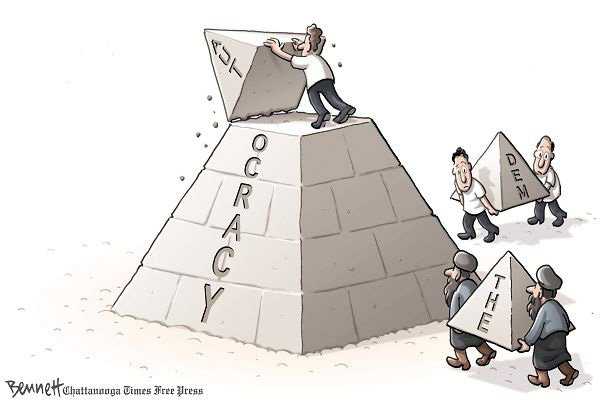
COUP/DARBE: A documentary film about the military interventions in Turkey
NEWS:
COUP / DARBE
RELEASED ON DVD!
A documentary film about the 1960, 1971, 1980, and 1997 military interventions and coups d’etat in Turkey
Directed by Elif Savas Felsen
Produced by Brian Felsen
COUP is made possible by a grant from the New York Council on the Arts and the Experimental Television Center
COUP (DARBE) explores the origins of the militarily-patrolled democratic system created by Ataturk in the 1920’s; the place of the armed forces in the political and cultural life of the nation; the causes and consequences of each coup d’etat and how they differ from those in South America and the rest of the world, and the future of the “military democracy.”
COUP contains not one word of voice-over narration or one frame of simulated footage. The film instead weaves together interviews with activists, politicians, and military leaders with extraordinary archival and personal footage of the military actions, street demonstrations and extremist activisms. This enables the film to illustrate the variegated nature of the current debate in Turkey, interweaving radically differing viewpoints without passing them through the filter of an overriding narrator. In so doing, the film can remain true to its subject, giving the viewer visual experience of the devastating impact of the collision between state and military authority and extreme civil activism, while providing a hoard of information that goes beyond the mere “sound-byte.”
SPEAKERS
Some of the film’s interview subjects are Former National Ministers of Health, the Interior, and Foreign Affairs; authors of the Turkish Constitution; current and former Members of Parliament; aides to the President and Prime Minister; military officers; junta leaders; intelligence agents; publishers; party leaders; extremist activists; former death-row prisoners, and scholars.
Several of the film’s interview subjects have never before spoken on film about their experiences. The filmmakers have brought together for the first time politicians from all sides of the political spectrum, even the extremes, to talk about issues of international importance.
COUP is above all an oral history of world-shaping events, and viewers are able to hear direct testimony from the participants themselves. Several who participated in the 1960 coup are well into their 80’s, making this film a great chance to preserve their thoughts and a wonderful window into their times. Already, four of our speakers are no longer with us: General Muhsin Batur (who died in Florence Nightingale Hospital in Istanbul of natural causes after filming), Columnist Raif Ertem, Constitutional Law Professor Bulent Tanor, and Journalist Ahmet Taner Kislali (who was murdered by a car bomb outside of his home shortly after filming completed.)
FOOTAGE
Never-before-seen photos, documents, audio clips, and film footage from news services and personal archives form the backbone of the film. The film contains ceremonials with the Ottoman Pasha from the 1910’s; Atatürk speeches from the 1930’s; footage from the army trial resulting in the hanging of Prime Minister Menderes; speeches by 1960 coup leader Turkes; clips of the condemned student leader Deniz Gezmis; May Day street demonstrations from the 70’s and extremist café bombings; the September 1980 coup announcement and the follow-up elections in 1983; the 1995 rise of the religious Refah party; the 1997 coup by memorandum and closing down of the Refah office; and military press briefings from 1998.
COUP examines the degree to which abstract ideals (such as “freedom of speech” and “human rights”) are actually applied in a country facing political exigencies. Even if such rights exist on paper, there are practical consequences of asserting them in a nation where the stakes are so high: one of the film’s speakers was murdered by a car bomb after filming; some were jailed for their writings; and some were punished for having spoken with Amnesty International about their experiences. The film also takes a hard look at the practical and ethical issues raised when a country takes anti-democratic measures in its attempt to preserve a democratic system. These implications are both national, when the military becomes involved in the political process, and international, when the nation must balance their own needs with those of foreign governments and world powers.
-
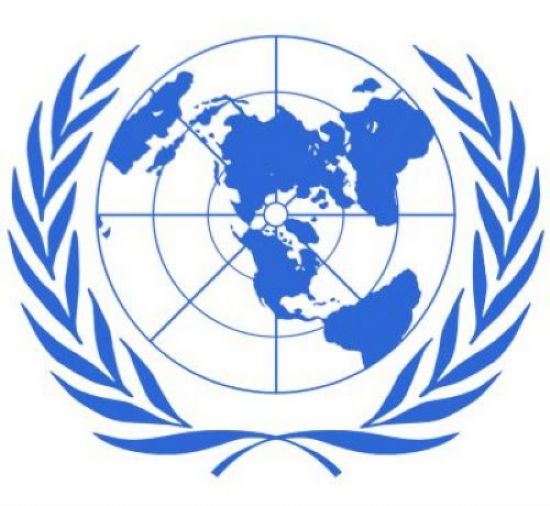
Chief Prosecutor Accused AK Party For Trying To Establish Theocracy
Chief Prosecutor Accused AK Party For Trying To Establish Theocracy
Supreme Court Chief Prosecutor made his oral presentation on July 1 regarding the AKP closure case and claimed that the AKP was trying to establish an Islamic state. Chief Prosecutor Yalcinkaya said in his oral presentation that AKP’s goal was a system based on Shari’a law and that there was a clear and present danger in this respect.In his one and a half hour presentation at the Constitutional Court, Yalcinkaya said that the Venice Criteria did not apply in this case and that the acquittal of Fethullah Gulen would not affect the outcome of this case, since this acquittal case did not change the fact that Gulen is an Islamist leader. Yalçinkaya also added that the annulment of the amendment about allowing the Islamic headscarf in the universities did not change the nature of the allegations, only strengthened them.
He also mentioned that the U.N. Security Council list of people who give financial support to terrorism included the Saudi businessman Yassin Al Qadi, who is associated with the PM and AKP circles.
Source: Bianet.org, Turkey, July 2, 2008 -
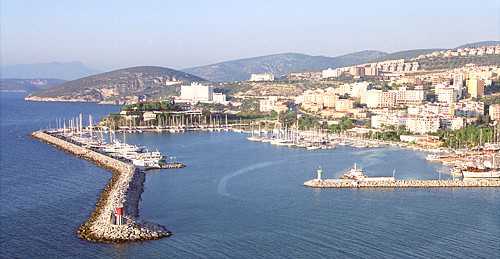
Syrian FM: Too early to speak on direct talks with Israel
Syria’s foreign minister said on Friday it was premature to talk of direct peace talks with Israel. A third round of indirect talks between the two sides took place in Istanbul this week and ended with an agreement to hold a fourth round of negotiations in Turkey in late July, a Turkish government source told Reuters on Thursday.
“It’s premature to answer this question,” Syrian Foreign Minister Walid al-Moualem said when asked when direct talks could be held. He confirmed that both sides had agreed to hold a fourth round of indirect talks, but did not say where or when.
“The moment when we feel that we’ve got the agreed common ground between us and the Israelis, which covers all elements of a peace agreement, we will agree on the location of these direct talks,” he said in a question and answer session at the French Institute for International Relations (IFRI).“The direct talks need an active American participation and sponsoring. To give guarantees we need an active European role maybe represented by France. We need also a role for Russia, a role for the United Nations for these talks,” Moualem conveyed.
“We are at the beginning,” Moualem said, adding that he had spent 10 years negotiating with the Israelis between 1991 and 2000, when he said 90 percent of an agreement was reached in direct talks. “Now we are in the third round. I did not calculate at that time how many rounds I had with the Israelis, more than 1,000 rounds,” he said.
© 2008 Al Bawaba (www.albawaba.com)
